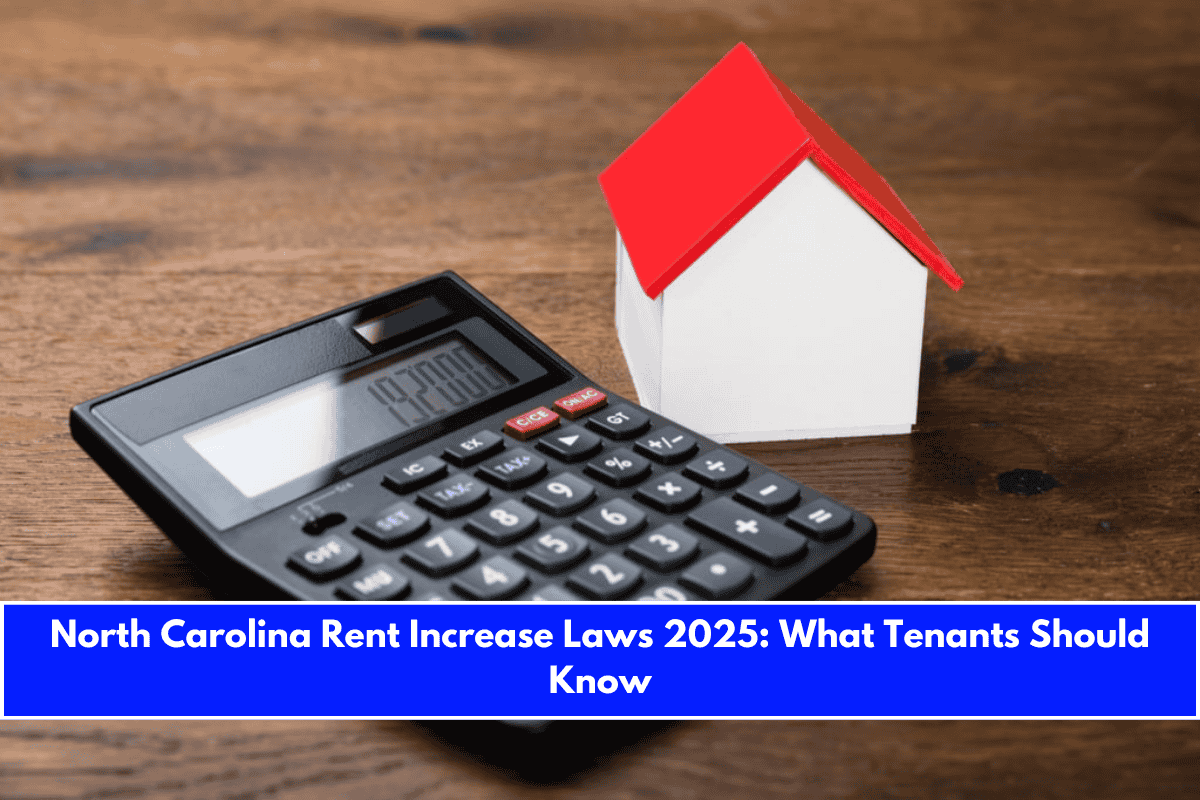North Carolina does not have any form of rent control or statewide cap on how much a landlord can increase rent.
Since 1987, state law has prohibited both state and local governments from enacting rent control measures, meaning landlords are free to set and raise rents as they see fit, subject to market conditions.
This applies across all cities and counties, including major urban areas like Charlotte, Raleigh, Durham, and Asheville.
Notice Requirements for Rent Increases
While there are no limits on the amount of a rent increase, landlords must provide written notice before raising the rent:
- Month-to-month leases: At least 30 days’ written notice is required before the increase takes effect.
- Fixed-term leases (e.g., annual): Rent cannot be increased during the lease term unless the lease specifically allows it. Otherwise, the landlord must wait until the lease expires and provide at least 30 days’ notice before the new rent starts.
The notice should clearly state the new rent amount and the date it will become effective.
Frequency and Timing of Increases
- No restrictions exist on how often a landlord can raise rent, but increases typically occur at the end of a lease term or with proper notice for month-to-month tenants.
- During a lease: Rent increases are only permitted if the lease agreement specifically allows for mid-term adjustments, which is rare in North Carolina.
Legal Protections for Tenants
While landlords have broad discretion, certain restrictions protect tenants:
- Discrimination: Rent increases cannot be based on race, religion, gender, national origin, disability, or other protected characteristics under the Fair Housing Act. Discriminatory increases are illegal.
- Retaliation: Landlords cannot raise rent in retaliation for tenants exercising legal rights, such as filing complaints or requesting repairs. Retaliatory increases can be challenged in court.
- Lease terms: Any increase that violates the lease agreement is not permitted.
Local Ordinances
Local governments in North Carolina cannot enact their own rent control laws due to the statewide ban. All rent increase regulations are set at the state level, ensuring uniformity across North Carolina.
What Tenants Can Do
- Negotiate: Tenants can attempt to negotiate with landlords if an increase seems unreasonable or unaffordable.
- Seek legal advice: If a rent increase appears discriminatory or retaliatory, tenants should consult a legal aid organization or attorney.
- Plan ahead: Since there are no caps, tenants should be prepared for potential increases at lease renewal and budget accordingly.
Summary Table: Key Points for 2025
| Aspect | Rule in North Carolina (2025) |
|---|---|
| Rent control/caps | None statewide or locally |
| Notice for month-to-month | 30 days’ written notice |
| Notice for fixed-term leases | 30 days before lease end (if not automatic) |
| Increase during lease | Only if lease allows |
| Discrimination/retaliation | Prohibited |
| Local rent control | Not allowed |
Bottom line: In 2025, North Carolina tenants should expect no legal limits on rent increases but are entitled to proper notice and protection from discriminatory or retaliatory hikes. Always review your lease and stay informed about your rights.
Sources:
- https://www.hemlane.com/resources/north-carolina-rent-control-laws/
- https://www.doorloop.com/laws/north-carolina-landlord-tenant-rights
- https://www.steadily.com/blog/how-much-can-a-landlord-raise-rent-in-north-carolina
- https://www.hendersonvillepropertymanagementinc.com/blog/how-much-can-landlords-raise-rent-in-2025
- https://www.steadily.com/blog/rent-increase-laws-regulations-charlotte-nc











Leave a Reply